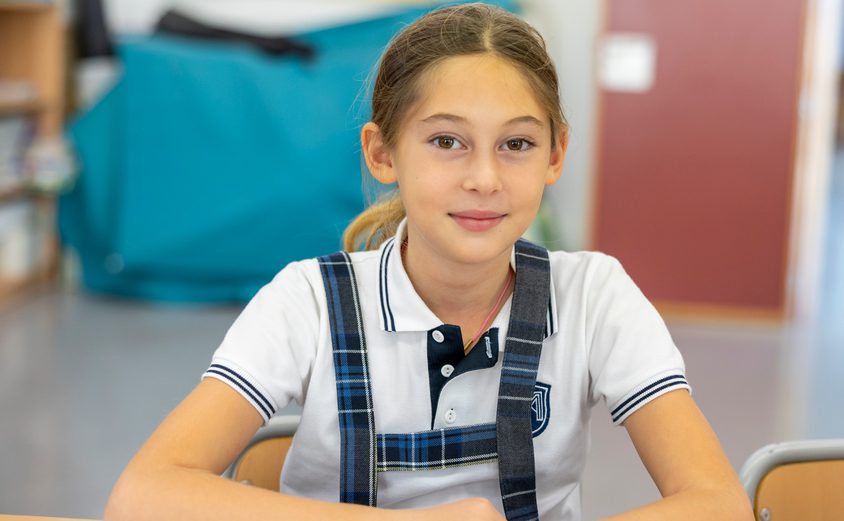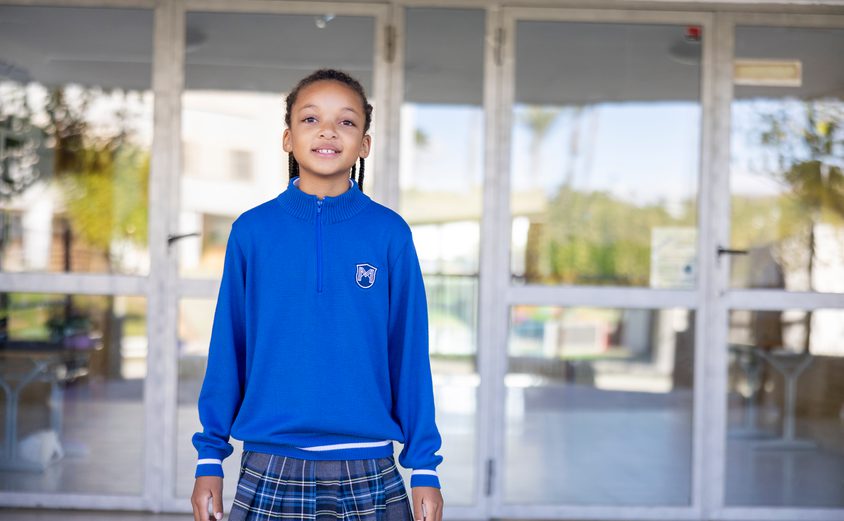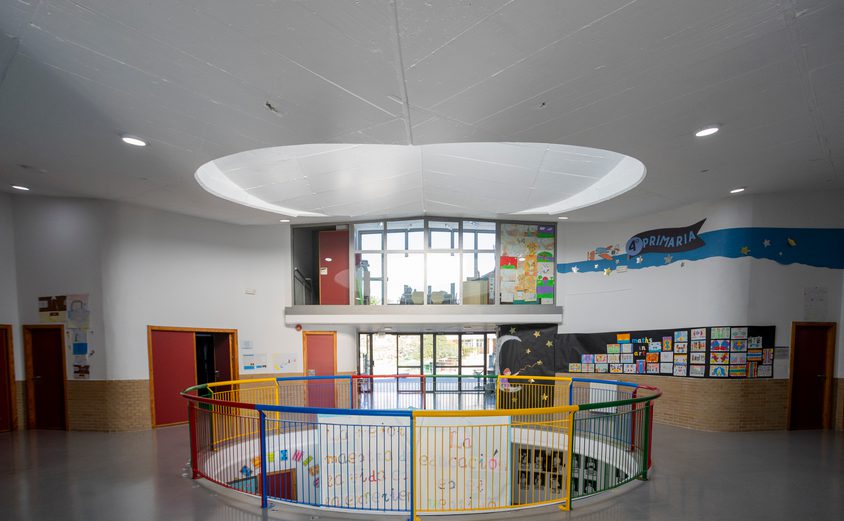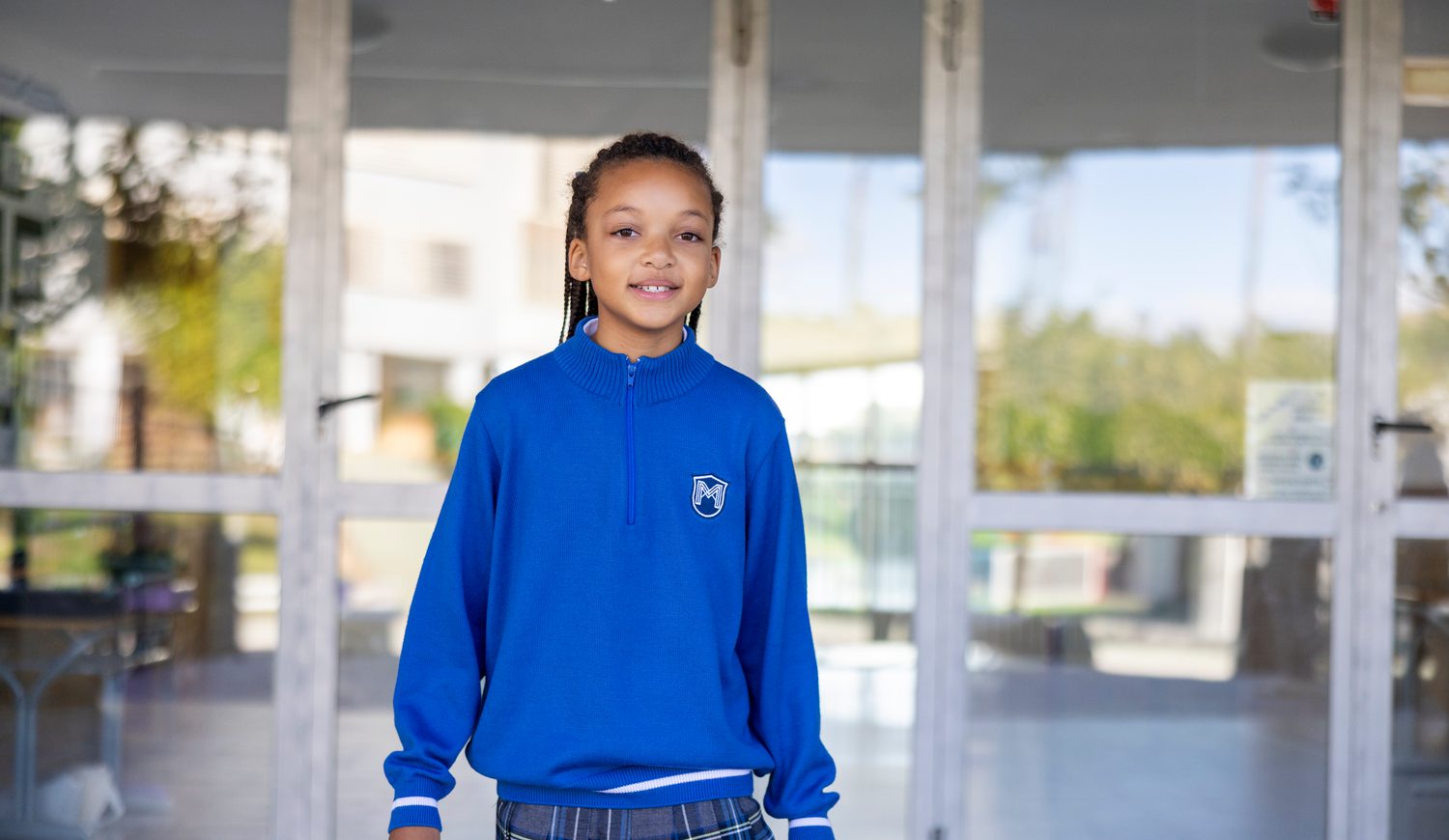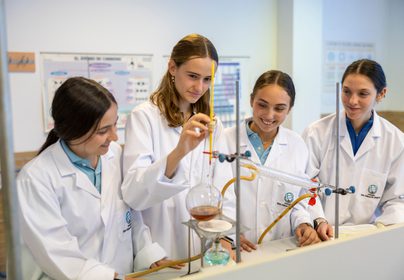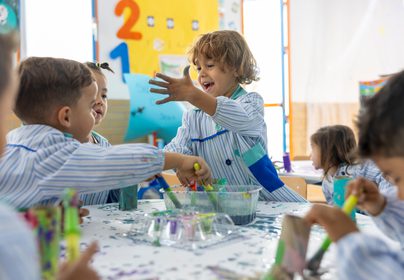Primary education at Magno runs from the age of 6 to 11. Children at Magno enjoy a unique blended curriculum which draws from the best elements of the Spanish National Curriculum and the prestigious Cambridge International Education programme.
During this period of their academic life, children at Magno have access to a wide range of subjects, activities, and academic challenges. This allows us to discover and nurture their interests and talents. They explore a wide range of topics, delving deeper into core subjects such as English, Science and Humanities. With this approach, children develop a lifelong curiosity and desire for new experiences and continuous learning.
A personal approach
We recognise that every child requires individualised attention to reach their full potential, academically, socially, and emotionally. So to ensure that every child receives the care and support they need, we maintain a low student-to-teacher ratio. This allows our highly qualified teachers to provide personalised guidance to each student. Through this more personalised learning experience, our teachers can address each student’s individual academic and emotional needs with greater attention and care.
A well-rounded education
Because we understand that 6-11 is a vital stage in a child’s development, in addition to a focus on the quality of teaching and learning, we focus on helping our children develop as human beings, including building self-esteem, cultivating friendships, and encouraging participation in extracurricular activities such as outdoor activities and team sports.
We develop our students’ skills in fundamental subjects such as reading, writing, arithmetic, science, humanities, and languages. We complement these core subjects with a diverse range of other activities, including swimming and dance for a well-rounded education.
Quality of education
More than 10,000 schools across 160 countries enjoy the benefits of being a Cambridge International school. We have chosen to blend our Spanish National Curriculum with the Cambridge programme because our goal is to provide every child at Magno with access to a high-quality, internationally recognised curriculum that prepares them not only for academic success, but also for life in a global world
Through this world-renowned framework, children build strong core skills and knowledge, preparing them to confidently meet the challenges of the rigorous Cambridge assessments by enriching their learning in core subjects, including English, Science, Humanities, Art and Design and Wellbeing,
As this teaching and learning is within a bilingual and international environment, children develop a global perspective, which enhances their learning and opens their minds to limitless future possibilities at a young age.
Benefits of the Cambridge International Education programme
At every stage of education at Magno, we are deeply focused not only on what our students are learning now, but also on preparing them for the next step in their academic and personal development.The Cambridge Primary Programme allows us to closely track each child’s strengths and areas for improvement. As they progress through the curriculum and transition to secondary school, we’ve already identified where they may need support—and where they’re likely to thrive—ensuring they receive the right guidance to flourish at every stage.
Cambridge Primary offers an optional external benchmark that helps teachers assess student progress over time with confidence. This valuable tool supports effective teaching and provides clear, structured reports to parents, ensuring transparency and insight into each learner’s development.
Designed with global diversity in mind, Cambridge Primary is both culturally sensitive and academically rigorous. It provides high-quality teaching and assessment resources suitable for both local and international schools. The flexible framework encourages educators to incorporate their own materials, drawing from local, national, and international contexts to enrich learning.
Cambridge Primary is designed to work alongside a wide variety of teaching styles and curricula, which is why it’s an exceptional complement to the Spanish National Curriculum. Its modular structure allows schools to adopt the elements that best fit their needs—nothing is compulsory, offering the freedom to tailor the programme to each unique educational environment.
Magno’s blended primary academic curriculum is enriched with non-academic learning experiences through sports, conversational language, and even chess, promoting physical, linguistic, and strategic development.
Below you will find just a selection of some of the activities Magno children enjoy outside of their set curriculum.
Our wonderful facilities include outdoor sports courts, a sports hall, and a fantastic heated swimming pool. Our primary students use these facilities to learn key life skills, such as swimming, while also developing their psychomotor skills, spatial awareness, and even concentration abilities.
At Magno, we make physical activity fun and a form of self-expression, ensuring that our students enjoy staying fit and healthy. Physical activities like dance are used as a means of self-expression, boosting confidence and self-esteem. Incredibly, the skills we teach our primary students through the art of dance are reflected later in secondary school, when we focus on public speaking and debating.The aim is to give students the opportunity to grow not only academically but also physically by participating in local competitions, connecting with peers who share similar interests, and promoting healthy competition.
At this age, our students are fully immersed in English, both spoken and written. They speak English with their peers and our native teachers. Many core subjects, such as Science, Art, and Music, are taught in English.
English occupies 55% of their school timetable. In Years 1 and 2, students will also study French and German, and from Year 3 onwards, they will choose one of the two languages to further refine their proficiency.
The methodology in Primary is active and participatory, ensuring that children enjoy speaking and practising English through the use of texts, games, songs, films, and role plays.
All language exams are conducted on-site, as we are an official exam centre for Cambridge, Goethe, and Delf.
You can find out mor about the mix of Spanish and English throughout school on our languages page.
In a dedicated classroom, our students practise chess, as it greatly contributes to children's intellectual development. Due to the nature of the activity, they acquire and strengthen skills such as perception, attention, reasoning, creativity, and imagination. Through chess, students also develop important abilities that they will apply to their academic work, such as analytical and synthetic thinking, calculation, and visual memory.

